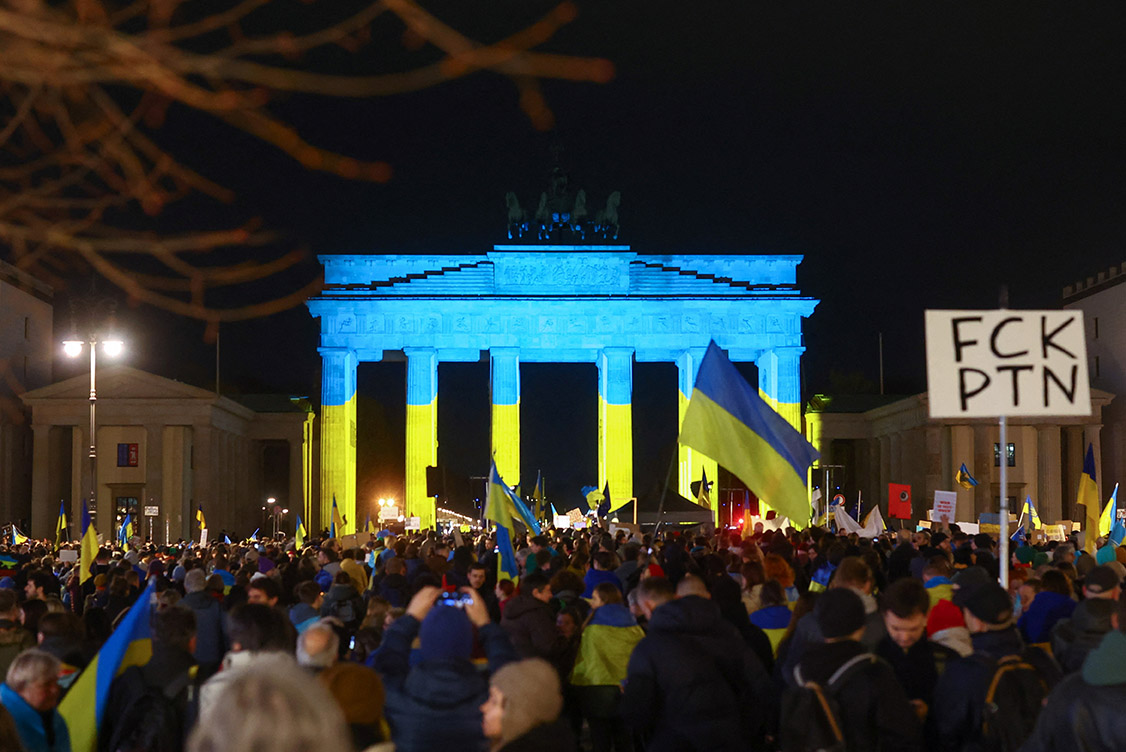Monday marked three years since Russia’s invasion of Ukraine, the so-called “special military operation” that was meant to have been completed within a few days with the invading troops marching into Kyiv and installing a pro-Moscow government.
After three years of unrelenting fighting and an estimated death toll of hundreds of thousands, Russia has not achieved it main objective. It has taken some 20 per cent of Ukraine’s eastern territory, while Ukrainian forces have captured a pocket of Russian land in Kursk.
Neither side looked like winning the war any time soon, until President Donald Trump undertook his perverse initiative to end the war, in which he openly advocated rewarding the aggressor and penalising the victim. After a 90-minute telephone conversation with Putin, Trump, spoke like Moscow’s chief propagandist, even accusing Ukraine of starting the war. He announced his readiness to satisfy all Moscow’s demands – no return of occupied territory to Ukraine, no Nato membership and no American security guarantees, while peace talks were arranged in Saudi Arabia between the US and Russia.
Trump also embarked on personal attacks on President Volodymyr Zelenskiy, whom he accused of being a dictator and criticised for not holding elections. There was not the slightest hint of criticism of the dictator who started the war. Now, the American president is also demanding that Ukraine hands over its mineral wealth to the US in exchange for the military aid (grossly exaggerated by Trump) it was given.
Nothing illustrated Trump’s pro-Russia bias better than the Riyad peace talks between, Secretary of State Marco Rubio and foreign minister Sergei Lavrov. The victim of Russia’s aggression did not get an invitation to the talks, which reportedly went very well, the implication being that it would have to agree to whatever Moscow and Washington decided. Some analysts described the meeting in Riyad as ‘Yalta 2,’ with Russia and the US once again discussing the division of Europe into two spheres of influence as had been done in 1945 after the end of WWII.
These developments, combined with Trump’s anti-Nato rhetoric and threats to end US security cover of Europe, have understandably caused alarm in European capitals, which fear that the appeasement of Putin could lead to more aggression. The independence and security of frontline states such as Poland, Lithuania, Estonia and Latvia could now be at risk because of Trump’s actions while Ukraine may be unable to carry on the war without support from the US.
Can the big European states and Brussels step up and take the responsibility for the continent’s defence and security requirements now that Trump wants to withdraw the United States and improve relations with Putin? Can European states offer Ukraine the support it needs to carry on fighting Russia, considering any peace deal it is offered by Trump would be a capitulation to Putin? The next few months will be a big test for Europe and the future of the continent.






Click here to change your cookie preferences